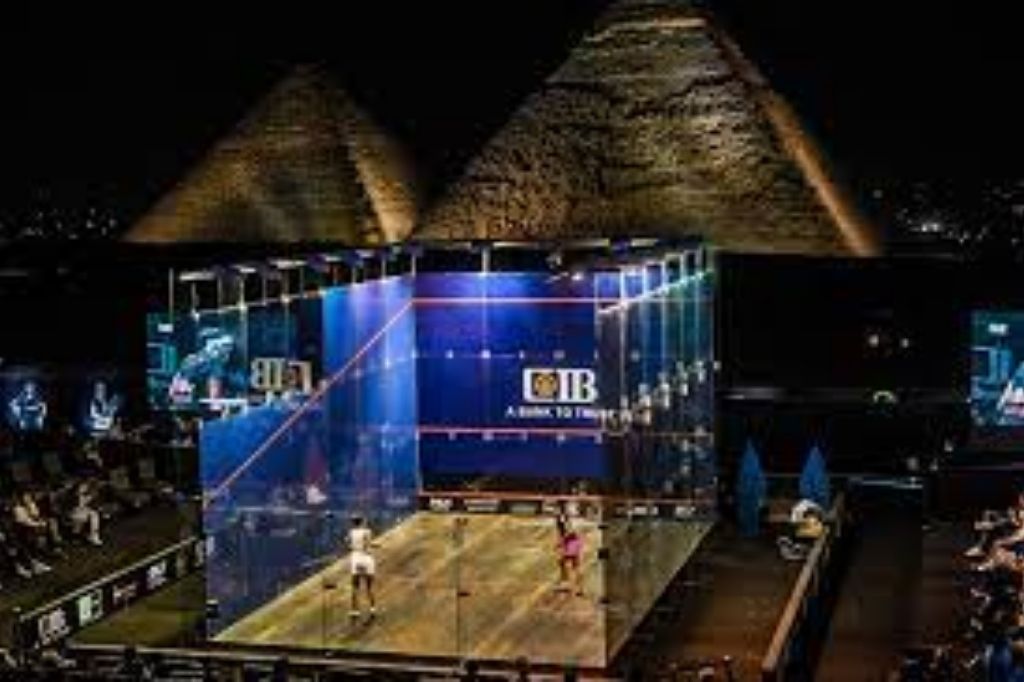For generations, the Olympic Games have stood as a testament to human athleticism, fostering international unity and celebrating the essence of competition. As the curtain rises for the 2028 Los Angeles Olympics, the global audience awaits with bated breath, eager to witness the revolutionary additions to the sports roster. The intricacies of squash, the widespread allure of cricket, coupled with the team dynamics of baseball, lacrosse, and flag football, are set to enrich the Olympic tapestry. A spotlight moment awaits squash, making its inaugural appearance in the domain of racket sports, heralding a new era for its fervent admirers.
Flag Football: Gridiron Elegance
Flag football, a modified version of American football emphasizing speed and agility, is set to take center stage in 2028. This inclusion represents a nod to the growing popularity of the sport and its adaptability for a global audience. With its fast-paced action and strategic gameplay, flag football promises to be a crowd-pleaser, showcasing the excitement and athleticism inherent in this dynamic form of football.
Squash: The Hidden Gem
Squash, a racquet sport played by two or four players in a four-walled court, has been a well-kept secret among sports aficionados. Known for its intense rallies, strategic gameplay, and lightning-fast reflexes, squash has gained a dedicated global following. Its inclusion in the Olympics not only validates its status as a world-class sport but also opens the doors for a new generation of athletes to compete on the grandest stage of them all.

Cricket: A Global Spectacle
The return of cricket to the Olympic Games in 2028 would mark a significant and highly anticipated development in the world of sports. Cricket, with its massive global following, has the potential to bring numerous benefits to the Olympics and the athletes involved. This move recognizes the sport’s universal appeal and its ability to unite nations through competition. With its various formats, including the shorter T20 version, cricket is poised to bring unparalleled excitement and international camaraderie to the Olympic arena.
Baseball: A Return to Olympic Glory
Baseball, a timeless classic with a rich Olympic history, will make a triumphant return in 2028. The sport’s inclusion reflects its enduring popularity and the universal appeal of team sports. Baseball enthusiasts worldwide can look forward to witnessing top-tier athletes compete at the highest level, delivering unforgettable moments and embodying the Olympic spirit of unity through sport.
Lacrosse: A Field of Dreams
Lacrosse, one of the oldest team sports in the world, will make its Olympic debut in 2028. Known for its combination of speed, skill, and physicality, lacrosse is set to captivate audiences with its dynamic gameplay. The inclusion of lacrosse opens the door for the sport to reach new heights and introduces Olympic viewers to the rich cultural history that surrounds this fast-paced game.

Also Read: AI’s Melodic Tribute to Indian Cricket Merges Tech and Art
Opportunities in Olympic Expansion
The Olympic Games’ addition of new sports opens a world of opportunities for countries to present their prowess to a global audience. To harness this potential fully and ensure athletes are at their best, a detailed five-year plan is indispensable.
1. Scouting Talent
Robust programs for identifying talent are paramount. Collaborating with local entities like clubs, schools, and sports federations can pinpoint and cultivate athletes primed for the new Olympic sport.
2. Athlete Development
Clear development routes, from grassroots to elite circles, offer athletes a structured progression. Such pathways focus on honing skills and deepening specialization.
3. Enhanced Coaching
Enlisting seasoned coaches, coupled with consistent training, is of the essence. Their expertise in the new sport ensures athletes get top-tier guidance for skills and tactics.
4. Diverse Competitive Exposure
Athletes benefit from engaging in both local and global competitions. Such experiences acquaint them with varied playing techniques, environments, and competitive pressures, all prepping them for the Olympics.
5. The Science Behind Sports
Comprehensive programs in sports science are non-negotiable. Emphasis on aspects like fitness, nutrition, strength training, and sports psychology ensures athletes are in prime physical and mental shape.
6. Selections and Training Regimes
Transparent criteria for national selections, coupled with dedicated training camps, are critical. These camps are pivotal for fostering team unity, fine-tuning strategies, and mastering sport-specific nuances.
7. Ensuring Financial Backing
Obtaining funds for training, equipment, and travel is crucial. Partnerships with businesses, government aids, and sports entities ensure a robust financial foundation for athletes’ endeavours.
8. Media and Outreach
A strong media blueprint is essential for athlete promotion and sparking public excitement. Exploiting channels like social media, press releases, and athlete showcases can effectively engage the masses.
9. Periodic Assessment
Constant evaluations of athlete performances and program efficacy are key. This ensures the roadmap stays relevant, adjusting to the ever-evolving sporting landscape.
“The inclusion of five new sports is set to bring a more diverse array of athletes into the sporting arena. Each nation participating in these sports will have the chance to identify and nurture talents that might have previously gone unnoticed. Embracing diverse sports ensures a richer pool of athletes, empowering nations to unearth unique talents and support them with varied skills.
The infusion of sports technology further amplifies the efficiency and performance potential within this evolving landscape of diverse sports.
Moreover, technology facilitates the identification of talent by providing objective metrics and comprehensive analytics. This not only streamlines the scouting process but also ensures that potential athletes are recognized based on a thorough understanding of their abilities, fostering a more meritocratic approach to talent identification.”
Authored By:

About Chetan Desai:Co-Founder of SportsSkill.
50+ years of experience in Lawn Tennis, Former ATP-rank 310
Won the First National Games (Olympic Format), 1985 at New Delhi.
















